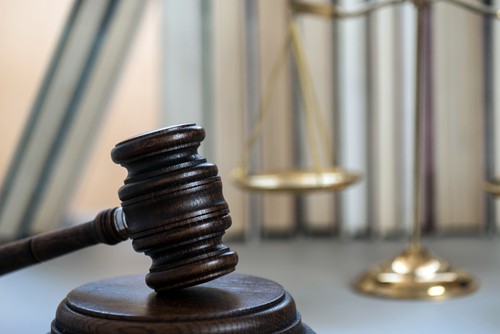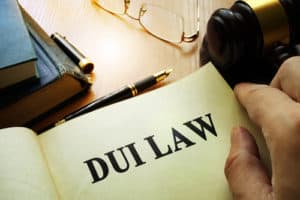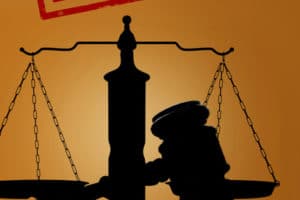
Being convicted of a crime does not have to carry a life sentence for you to feel its effects throughout your life. Even if you have served your time and paid your fines, a conviction may continue to follow you around, potentially impacting many aspects of your life, including:
- Your ability to obtain employment that you like or any employment at all
- Your ability to obtain housing in desirable neighborhoods or any housing at all
- Your ability to obtain custody of your child or visitation rights
- Your ability to obtain a loan
The negative consequences of a criminal conviction can compound each other, especially if they directly impact your ability to remain financially stable. Expunging a conviction from your record (a process referred to under the Texas Code of Criminal Procedure as “expunction”) or shielding your conviction from the public’s view can help minimize or reduce the ill effects of your past conviction.
Call our team at the Law Offices of Randall B. Isenberg today at (214) 696-9253 to learn how a McKinney expunction or nondisclosure lawyer may be able to help.
Know Your Eligibility for Expunction
Having an arrest or criminal conviction expunged from your record has a higher difficulty threshold than having your charge sealed from the public’s view, as is the case with an order of nondisclosure. According to Title 1, Chapter 55, of the Texas Code of Criminal Procedure, you may be eligible to have an arrest or charge expunged if:
- You were acquitted of the charges for which you were arrested
- You were convicted, but were later pardoned or deemed innocent through other means
- You were never formally charged
- The charges were voided for any other reason
- A prosecutor agrees to the expunction
There are several circumstances under which you may not be eligible to have one or more charges expunged. Consulting a McKinney expunction or nondisclosure lawyer may help shed more light on whether those circumstances apply to you. Still, even if you are not eligible to have one or more records of arrest or conviction against you expunged, you may have the opportunity to have certain records concealed from public viewing.
Eligibility to Have Records Hidden From Public View
Unlike expunction, an order of nondisclosure does not completely eliminate records of your arrest or conviction from existence. Instead, it allows such records to remain visible to law enforcement officials and perhaps other government agencies, but not to the general public.
A nondisclosure order may be beneficial to you in that it could:
- Prevent prospective employers, loan officers, landlords, and others who might judge you based on an arrest or conviction from viewing your conviction or arrest records
- Prevent those who are generally curious, or maliciously curious, about you from finding this information through a Freedom of Information Act (FOIA) request or through other means
- Prevent a criminal conviction or unjustified arrest from being held against you
According to Section 411.0715 of Texas Government Code, you may be eligible for a nondisclosure order if your conviction ultimately resulted in you being on probation, whether because of deferred adjudication or a suspended sentence. This could occur if you pleaded guilty to a crime or were not charged and instead received a deferred sentence that was never imposed.
You might not be eligible for an order of nondisclosure if you were convicted of certain crimes. A McKinney expunction or nondisclosure lawyer may be able to provide you a list of such crimes.
If you want to learn more about and possibly pursue an order of nondisclosure or expunction of one or more records, then speaking with our legal team may benefit you. Call the Law Offices of Randall B. Isenberg today at (214) 696-9253 for a free consultation.
How a Lawyer Can Help You Pursue Expunction or a Nondisclosure Order
The State Bar of Texas details the broad process for filing for expunction or a nondisclosure order based on various circumstances. There may be several considerations that could apply in your case, including:
- The statute of limitations for the crime that you were convicted or accused of
- Any specified waiting period for filing for expunction or a nondisclosure order that applies to your circumstance
- The circumstances under which you were acquitted or ultimately discharged of any conviction or guilty plea
A lawyer may be able to explain how the above and other relevant considerations can impact your ability to obtain an expunction or nondisclosure order. Once you have an initial consultation, your lawyer may:
- Help you file your petition for expunction or nondisclosure within the required time frame
- Advise you on actions that you are and are not eligible for, so you do not spend time or money on actions that are likely to be fruitless
- Initiate any additional legal action that could be necessary to pursue an expunction or nondisclosure order
- Ensure that your rights are protected throughout their time as your lawyer
You may have much riding on the possibility that your record could be completely expunged, partially expunged, or shielded with a nondisclosure order. You can choose to employ a McKinney expunction or nondisclosure lawyer to assist you through the filing process and any additional steps that may be necessary.
Call the Law Offices of Randall B. Isenberg Today
If you have been convicted of a crime, arrested and released, acquitted, or endured other circumstances that have resulted in a law enforcement paper trail that continues to follow you, you may have an interest in seeking an expunction or nondisclosure order.
Lead attorney Randall B. Isenberg has more than 30 years of experience as a prosecutor, judge, and attorney, and his team may be able to assist you in pursuing the expunction or nondisclosure order. Call our team at the Law Offices of Randall B. Isenberg today at (214) 696-9253 for a free consultation.










